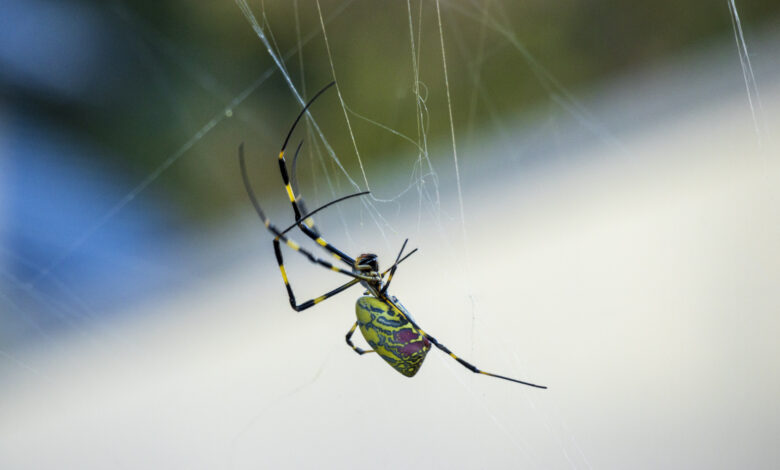Parachuting Joro spiders expected to creep in NY this summer

It’s raining…giant spiders?!
Spiders that can float on the air and grow to the size of a human hand have been invading the US for more than a decade.
And now they could be touching down in New York — just in time for summer.
Trichonephila clavata – more commonly known as Joro spiders – are native to East Asia, and are known for spinning massive sticky webs.
They have recently been confirmed as far north in the US as Maryland.
New research suggests they are expected to land in New York and New Jersey as early as this summer, according to Clemson University Professor David Coyle.
“The data from the study shows that this spider is going to be able to inhabit most of the eastern U.S.,” Coyle noted.
“It shows that their comfort area in their native range matches up very well with much of North America,” he added.
Many Joro spiders are just a few inches cross, but their bodies can grow up to four inches, and their legs up to six inches long.
Females are brightly colored, with yellow bodies with gray or blue stripes, while the males are typically brown.
They are light enough to use wind currents to travel, and can travel up to 100 miles at a time.
But there’s good news here, too.
They’re pretty docile and don’t threaten humans.
Joro spiders can bite – but only when they feel threatened, Louis Sorkin, an a retired arachnologist, told Gothamist.
“They really don’t pose a big threat. Of course they have venom, but it’s not a dangerous venom,” he explained.
They also to prey on some of the region’s pesky insects, including mosquitos and biting flies.
Arachnophobes will be glad to know that the spiders also do not like to be inside, and are more likely to weave their webs on the outside of structures, Coyle, the Clemson researcher, told NBC4.
With that said, Joro spiders have been observed to be pushing out native species when they pop up in a new area, Coyle added.
“These are not just benign spiders coming to catch and kill bad things; these are pushing out native species and catching and killing whatever happens to get in their webs,” he said.
“Are they bad or good? It’s very nuanced depending on your perspective.”




